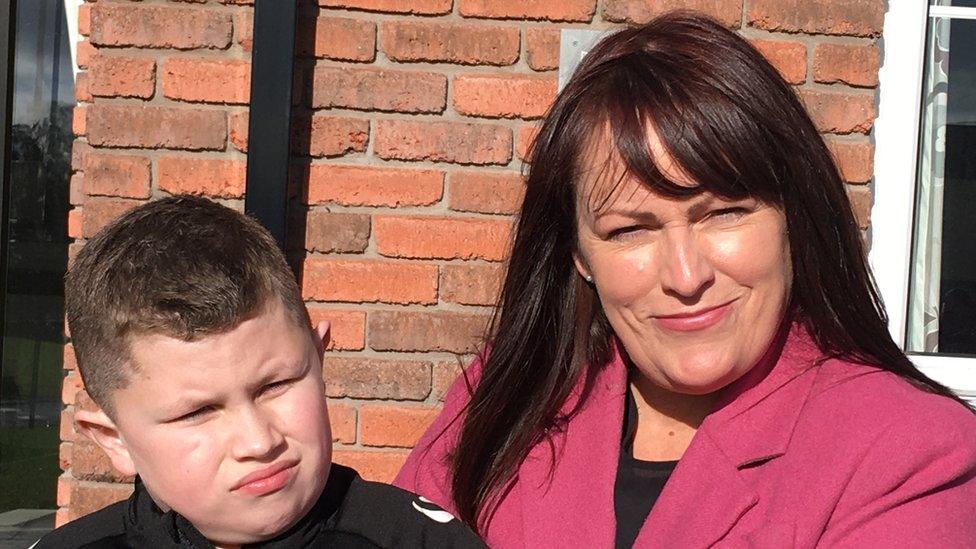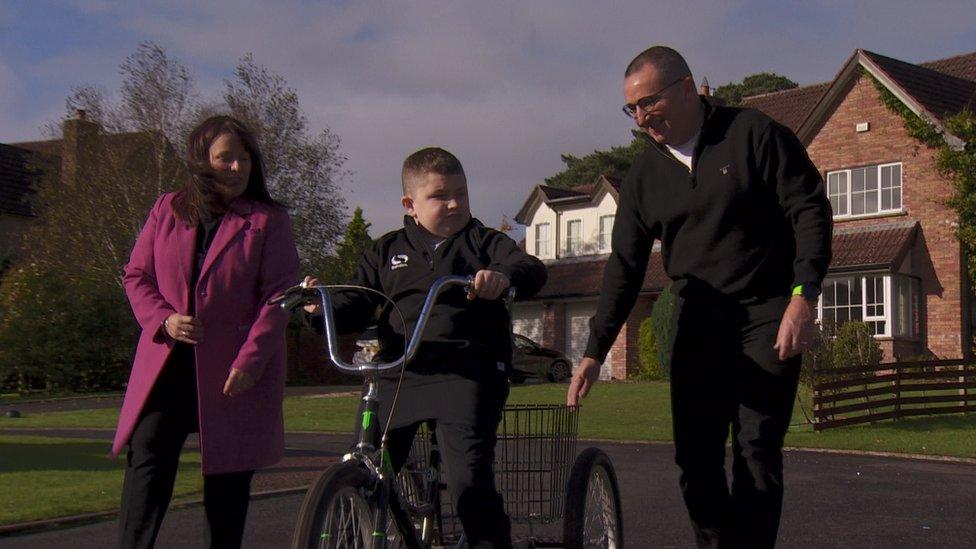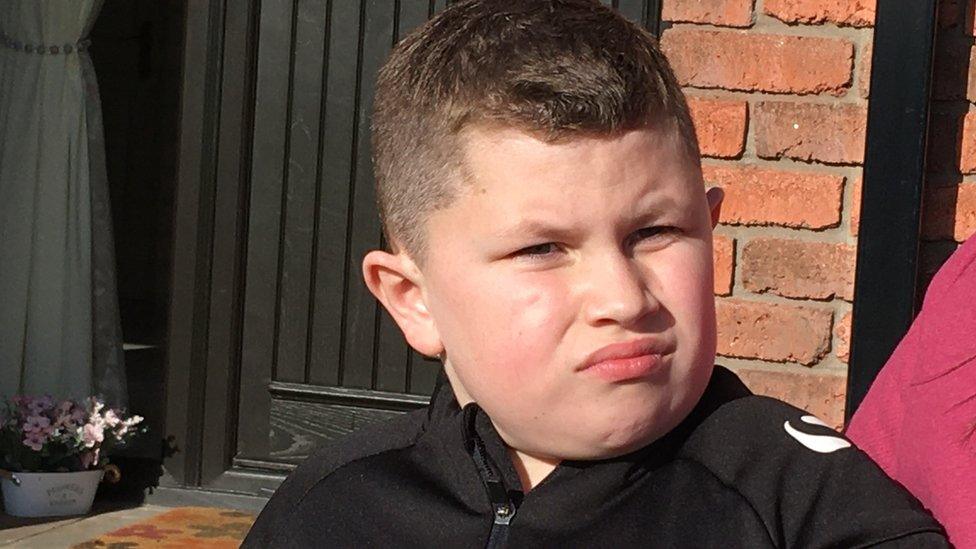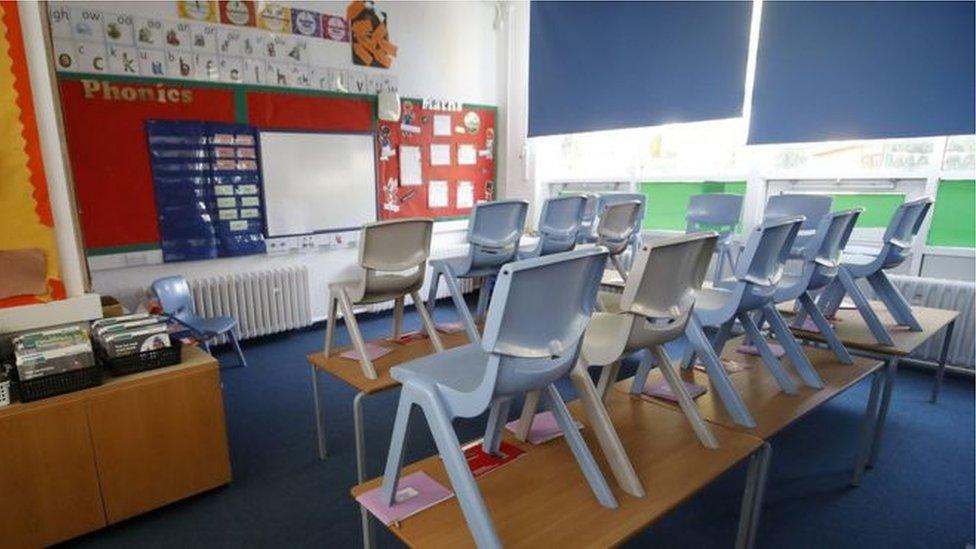Covid-19: Families fear further respite cuts for vulnerable children
- Published

Charlie and his mum Debbie both benefit from special needs respite
Charlie Cunningham is 11 years old. He likes to play on his swing and ride his bike in the sunshine.
He's also autistic, profoundly deaf and has a severe learning disability. Routines have always been vitally important to Charlie and his parents.
But over the past eight months, a lack of schooling and respite support has caused great anxiety for his family.
"School is a big part of his life, he's become bored and frustrated, " Charlie's mother Debbie said.
"My husband and I have been working from home and we work full-time - we haven't been able to give him the time he needs to stimulate him. His behaviours definitely have become challenging and have regressed in that time."
School closures and the suspension of respite services have affected hundreds of families like Charlie's this year.
Charlie usually receives three hours respite care on a Saturday afternoon.

That was suspended during the first wave of Covid-19, but was later reinstated.
However, the family expects it will be disrupted again with the introduction of further circuit-breaker restrictions.
A spokesperson for the Department of Education said it has been "working closely with colleagues across health and social care and education to ensure that measures, including bespoke arrangements where required, have been put in place to support families on a risk assessed basis and in accordance with COVID-19 guidelines".
'It means so much'
"To somebody else, it doesn't sound like much - three hours a week, what difference could that make?" Debbie said.
"But we so look forward to it. For our other son, I can go watch him play football or go out for lunch, or do normal things we couldn't do when Charlie is with us."
She added: "Charlie needs constant care, he doesn't understand danger and you can't leave him on his own.
"You can't do normal things as a family - we can't just go to restaurants, we can't go to places because Charlie might crack up. He might not get out of the car, or be unsettled or frustrated, and lie on the ground.
"It [respite] means so much to so many families. It just gives you time to de-stress and just get a break."

Routines have always been vitally important to 11-year-old Charlie Cunningham
Last week, the Education Committee at Stormont heard evidence on how essential services for families of children and young people with disabilities "went to zero overnight".
'Intensified isolation'
Along with weekly respite, Charlie went to an after-schools scheme run by a charity called Sense.
The Cunningham family paid for additional daily support from Sense throughout lockdown, to try to maintain stimulation and familiarity for Charlie.
"The impact is, people just haven't had that break from caring," said Richard Kramer, the charity's chief executive.
"Before the pandemic, people would have the opportunity to attend school, colleges, day services, short breaks, or receive therapies.
"And now, over the last seven months, hospital appointments have been cancelled, assessments postponed, day services and short breaks were closed. So people aren't getting respite, therapies, equipment during this time and it has really intensified this isolation."
Some parents at 'breaking point'
As they both work full-time from home and have another son to care for, time is at a premium for Charlie's parents. The support from Sense meant he had two hours per day with a one-on-one support worker.
But Debbie is concerned he will never make up for the time he has lost.
"I think he'll be behind, that's just one of those things we're going to have to accept, that his other milestones will not be met.
"I have a lot of friends with kids with special needs and they're at breaking point.
"We don't have family near us that can help us, and if you don't have any support and you're working... It's going to be a long winter and I'm not looking forward to it."
- Published22 October 2020
